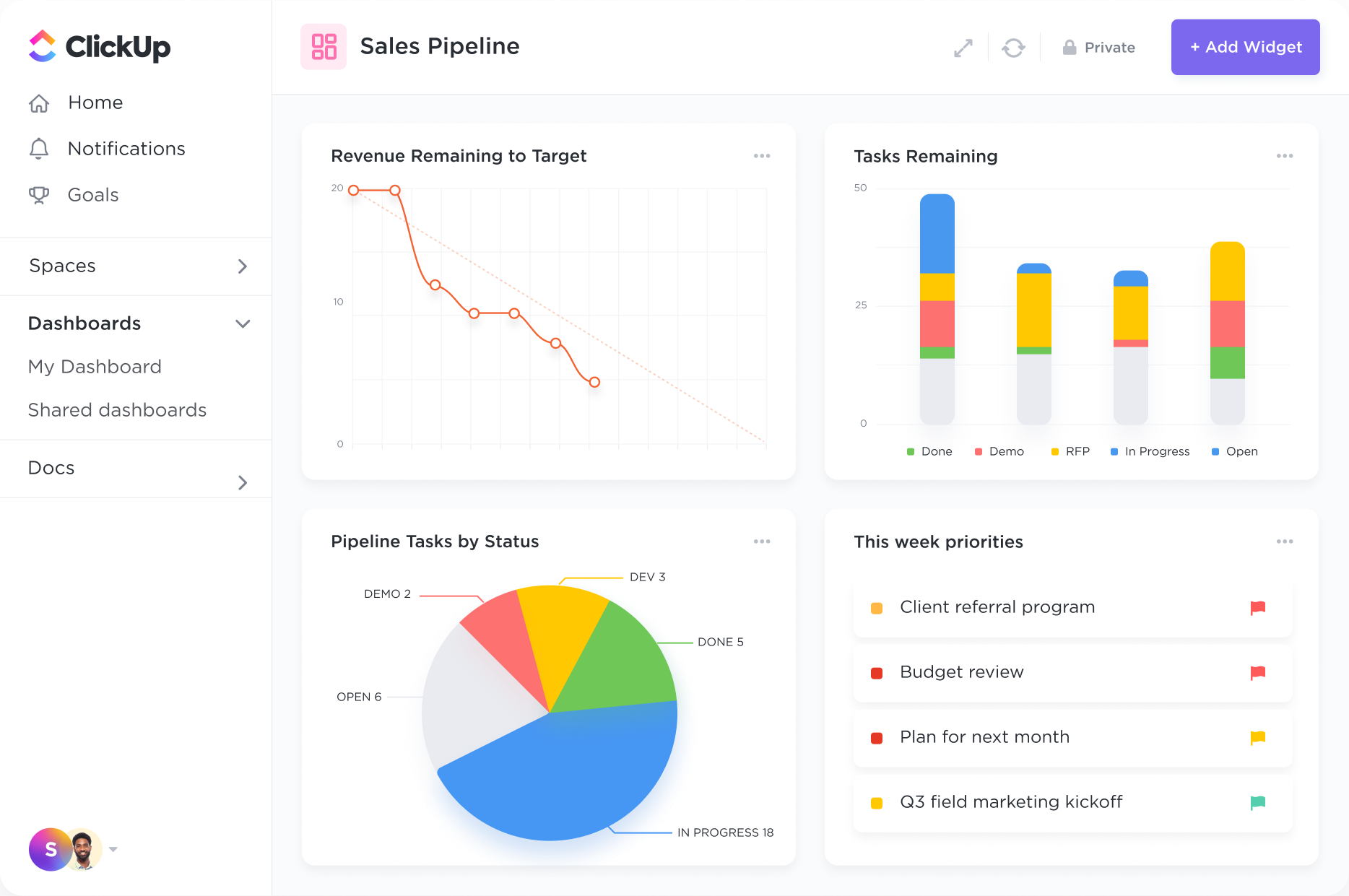Centralize customer outreach.
Eliminate silos and fast-track communication by integrating your emails with ClickUp. Collaborate on deals, send project updates to clients, and onboard customers with a single email hub.

Streamline your educator-client relationships with a customized CRM system powered by ClickUp. Organize student information, track progress, and manage communication effortlessly. Elevate your educational institution's efficiency and effectiveness with our user-friendly CRM solution.
Free forever.
No credit card.
Trusted by the world’s leading businesses
Eliminate silos and fast-track communication by integrating your emails with ClickUp. Collaborate on deals, send project updates to clients, and onboard customers with a single email hub.

Create high-level views to monitor customer lifetime value, average deal sizes, and more. ClickUp's 50+ Dashboard widgets make it easy to visualize all of your customer data in one place.

CRM software in an educational setting helps in managing student information efficiently, improving communication with students and parents, tracking academic progress, facilitating enrollment processes, and analyzing data to enhance student performance and retention.
CRM software helps educators by centralizing student information, facilitating communication with students and parents, tracking academic progress, managing schedules, and enabling personalized support for each student's needs.
Yes, CRM software for educators may include features such as student profiles, academic records tracking, communication tools for parents and students, scheduling for classes and events, and integration with learning management systems.